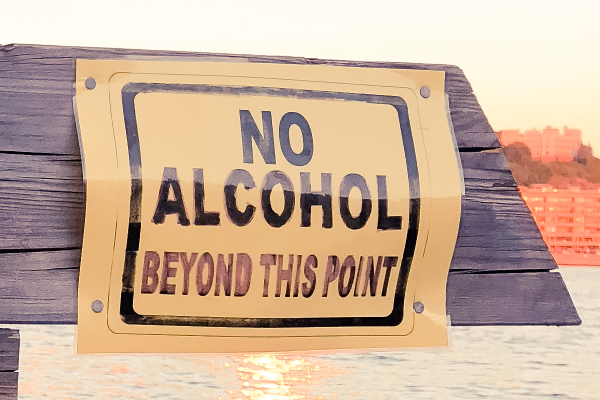Common questions about drinking habits and how to address them can often be shifted to whether you experience “loss of control” — Find out what that means and more below.
The video embedded below was produced by the Northeast Chapter of the Association of Corporate Counsel. With over 1,400 members in its Northeast Chapter covering Massachusetts and four other states, the ACC is a global legal association that promotes the common professional and business interests of in-house counsel who work for corporations, associations, and other organizations through information, education, networking, and advocacy. The Northeast Chapter of the ACC offers over 40 educational, professional development and networking events throughout the year. These programs and events offer members ample opportunity to meet, learn and engage with other in-house legal professionals and the chapter’s respected sponsors.
Transcript
JEFF FORTGANG, PH.D., LADC-I, LCL MA STAFF CLINICIAN
My name is Jeff Fortgang, I’m a psychologist and a licensed alcohol and drug counselor, addressing alcohol problems with people for over 40 years. Aside from my practice, I’ve spent many years working for Lawyers Concerned for Lawyers, the Massachusetts lawyer assistance program.
I’m here today to address questions you might ask yourself like, do I have to stop drinking? Can I find a way to drink consistently without a problem? What is loss of control? Maybe you or someone you know has gotten into some kind of problem with drinking. Lawyers drink more than most people, and have a significantly higher rate of alcohol use disorder than most people.
Even so, no one wants to stop if they don’t have to. But maybe you got arrested for driving under the influence. Or your spouse hates it when you drink. Or you made a jerk of yourself at the firm’s Christmas party or working lunch. Or your doctor’s worried about your liver function tests. Maybe you don’t completely remember how you ended up in bed with Chris from accounting. You think, Well, I can’t be an alcoholic, because I don’t drink every day. Or, I don’t need alcohol to function or don’t drink as much as that other person. Or I don’t get shakes after drinking.
Most people with what we’re now calling alcohol use disorder, don’t get significant withdrawal symptoms, don’t have to drink every day when needed to function. Some of them may be able to pull off a lasting change in their drinking habits. There are little experiments that I sometimes do with people to test the hypothesis.
A key question unrelated to what you drink, or how frequently you drink, is whether you have what we call loss of control. By this, we don’t mean losing control of all your behavior. But we’re currently finding that you can’t regulate how much alcohol you consume once you start. You might think you’re gonna have one or two, and you end up having six or eight or 10. This is different from what we might call normal drinking, where you simply don’t feel like having more than one or two because you’ve reached a certain blood alcohol level. And this happens without much thought. It has been likened to a faulty thermostat, which doesn’t stop the furnace from churning out the heat, even when the temperature rises way above the temperature that it was set.
Sometimes people who have loss of control can exert with extra effort, the ability to limit their drinking, by paying close attention, like someone is watching who really cares about how much they drink. But eventually they’ll return to their defaults. But why do some people have loss of control? Is it poor character? Is it that they have less willpower than the next person? Is it that they just keep making poor choices? No. It seems to be something neurobiological and even tends to run in families genetically. So the person doesn’t have much of a choice.
In that case, the safest choice is not to consume the first drink. And then there won’t be any others. Somehow we understand this better when we think about smoking. If we know somebody who, for years smoked a pack or two a day of cigarettes. We don’t think well maybe they can just have a few cigarettes.
But no one wants to stop drinking or really to stop doing anything they’ve become accustomed to doing. You’d resist even if I told you that you can no longer watch Netflix. Plus, it’s much harder to stop drinking than to stop watching Netflix. It’s not exactly just a decision and people really have trouble believing that. This time, they think, it’ll be different. I’ll just apply my rational mind and do what I’ve decided to do. But for some people, that’s like saying, I’ll just put one foot in this quicksand, and then I’ll stop sinking.
So that’s why people I see often do a series of experiments, either with a therapist, or counselor, or on their own. There are strategies and medications that are helpful to some individuals. And some people are okay if the consequences of drinking just happen less frequently, or in a milder form. That’s called harm reduction. And often doesn’t quite please the people who care about a person. For example, if the person drove drunk 20 times last year, and only 10 times this year.
Many people ultimately decide that their lives will go better without drinking at all, and in fact, eventually feel delighted and grateful that they made that change. Of course there are ways to get support and improve one’s odds of success. But that’s for another time. Thanks for listening. So long for now.
Related:
LCL MA RECOVERY PEER SUPPORT MEETINGS. Our confidential peer support group meetings exclusively for Massachusetts lawyers, law students, and judges continue to meet twice weekly online, with additional times based on in-person meetings held across Massachusetts prior to the pandemic. Plans to return to in-person meetings are being made by group leaders of each location, as reflected on our meeting listing.
Alcohol Awareness Month: Starting with Self-Awareness (LCL MA Blog, April 2021)
Free & Confidential Consultations:
Lawyers, law students, and judges in Massachusetts can discuss concerns with a licensed therapist, law practice advisor, or both. Find more on scheduling here.




